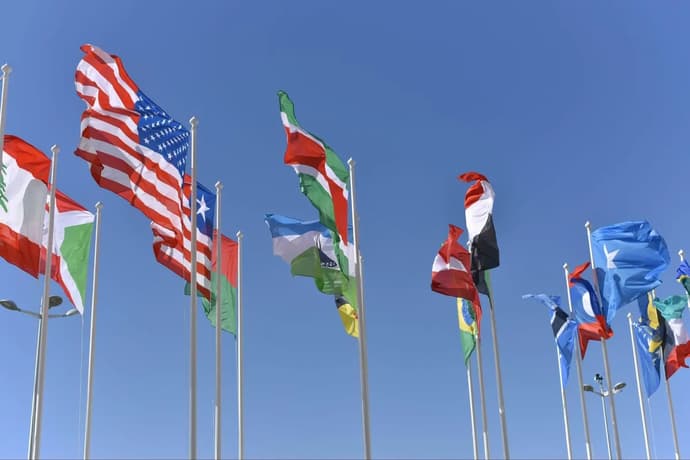
Are Online Casinos Different Across The World?

Online casinos operate as a global industry, providing users with access to digital gambling platforms. While the fundamental mechanics remain uniform—engagement with poker, blackjack, and slot games for monetary stakes—the structure of these platforms is subject to jurisdictional variations. Regulatory frameworks, cultural influences, and technological infrastructures contribute to discrepancies in user experience.
Licensing procedures, game selection, and payment processing methods exhibit divergence based on regional governance structures. Additionally, player protections, responsible gambling measures, and taxation policies influence operational models, creating further distinctions among markets.
What Online Casinos Look Like in the United States
The online casino framework in the United States is decentralized, with regulation executed at the state level. Unlike regions governed by unified gambling authorities, the USA assigns regulatory autonomy to individual states. This results in disparities, wherein states such as New Jersey and Pennsylvania operate legal online gambling markets while others enforce prohibitions.
Players in states without licensed platforms frequently utilize offshore services, which operate within a legal gray zone. However, according to gambling expert Liliana Costache these platforms have introduced more benefits in the USA gambling market by providing faster transactions, higher-paying games, and more generous bonuses.
This integration facilitates a hybridized gambling experience for users. Furthermore, states with legalized online gambling impose strict measures regarding licensing, fair play, and consumer protection, ensuring operators meet established standards.
European Market Regulation
European countries demonstrate advanced regulatory frameworks for online gambling. The United Kingdom exemplifies a structured system in which the UK Gambling Commission oversees licensing, advertising, and fairness standards. Sweden, Spain, and Germany enforce similarly structured policies, ensuring compliance with established legal protocols.
Conversely, nations such as Norway and Finland restrict online gambling to government-controlled entities, limiting domestic choices. However, users in these jurisdictions often bypass restrictions through offshore platforms.
Asian Market Constraints
Online gambling regulations within Asia display significant variance. Japan enforces prohibitions on most online casino activities, with exceptions for certain betting sectors, such as horse racing and lotteries. Offshore platforms remain accessible, catering to user demand. In contrast, China enforces a blanket ban on online gambling.
Despite legal restrictions, underground gambling networks persist. The Philippines serves as a regulatory exception, with PAGCOR issuing licenses for domestic and international operators. Additionally, emerging markets in Southeast Asia, such as Vietnam and Thailand, exhibit growing interest in online gambling despite existing legal constraints.
Online Gambling in Canada
Canada implements a provincial regulatory approach to online gambling. While federal authorities do not directly govern online casinos, provinces maintain jurisdictional control. Ontario has established a fully licensed online gambling market, allowing private operators to function legally. Other provinces, such as British Columbia, facilitate government-run platforms.
Users in unregulated provinces commonly engage with offshore services, which remain legally ambiguous but functionally accessible. Canada’s approach includes responsible gambling initiatives, reinforcing its commitment to a balanced regulatory environment.
Australian Online Casino Regulation
Australia enforces strict limitations on online gambling activities. The Interactive Gambling Act of 2001 prohibits online casino operations targeting Australian users. However, sports betting and online poker are permitted under specific conditions. Offshore online casinos retain a user base, as legal enforcement against individual participation is minimal.
The Australian government emphasizes responsible gambling protocols, mandating advertising restrictions, and harm prevention initiatives. Additionally, financial institutions sometimes block transactions associated with offshore gambling platforms to discourage unauthorized participation. However, recent discussions suggest that Australia may consider revising its stance on online casino regulations to address rising consumer demand and industry growth.
Latin America’s Market Expansion
Latin America represents an emerging market for online casinos, with regulatory evolution occurring in multiple nations. Colombia was the first to implement a structured licensing system, while Argentina permits provincial regulation. Brazil, a market with substantial growth potential, is undergoing legislative processes to establish a regulatory framework.
Offshore platforms currently dominate user engagement; however, localized regulation is expected to expand, increasing domestic market participation. Governments in the region are beginning to recognize the economic benefits of a regulated online gambling industry, leading to discussions about policies that could shape future legislation.
African Online Gambling Development
Online gambling expansion in Africa is driven by a rise in mobile device adoption. South Africa maintains a regulated online sports betting sector, even though online casinos face some legal restrictions. Conversely, Kenya and Nigeria implement more flexible policies, permitting licensed operators to provide services. Increased smartphone penetration has facilitated industry growth, with regulatory adjustments anticipated in response to rising market demand.
Additionally, fintech solutions have enabled seamless payment processing, overcoming traditional banking limitations that previously restricted online gambling accessibility in certain African nations. The evolving landscape suggests that as internet penetration continues to rise, regulatory bodies will adapt to new market conditions.
Conclusion
Online casinos exhibit structural differentiation across global jurisdictions due to distinct legal, cultural, and technological influences. Regulatory bodies enforce varied operational constraints, affecting licensing, game selection, and accessibility. In regions with restrictive policies, offshore services serve as alternative solutions.
Furthermore, tax policies, advertising regulations, and financial transaction monitoring contribute to regional disparities. As legislative frameworks continue to evolve, market disparities may experience recalibration, particularly as governments assess the economic viability of regulatory adaptation.

Elen Stelmakh is a creative individual dedicated to advancing gaming culture through articles and visual design. As a full-time EGamersWorld author and designer for a gaming website, Elen not only creates content but also infuses it with energy and creativity.
 League of Legends Events Schedule in 2026Explore the 2026 LoL competitive calendar. Get the latest on tournament formats and dates, from regional leagues to Worlds in New York. Your guide to the entire 2026 League of Legends season.
League of Legends Events Schedule in 2026Explore the 2026 LoL competitive calendar. Get the latest on tournament formats and dates, from regional leagues to Worlds in New York. Your guide to the entire 2026 League of Legends season. Sekiguchi Marathon Faction: Contracts, Upgrades, RewardsDiscover everything about the Sekiguchi Marathon faction: contracts, upgrades, rewards.
Sekiguchi Marathon Faction: Contracts, Upgrades, RewardsDiscover everything about the Sekiguchi Marathon faction: contracts, upgrades, rewards. Full Breakdown of the Shyvana VGU: New Abilities, Release Date, Everything We KnowFull breakdown of the LoL Shyvana rework. Check out her updated skills, including new true damage and healing, plus the release date and Riot Games' plans for the game.
Full Breakdown of the Shyvana VGU: New Abilities, Release Date, Everything We KnowFull breakdown of the LoL Shyvana rework. Check out her updated skills, including new true damage and healing, plus the release date and Riot Games' plans for the game. Marathon Roadmap: What Awaits Players in Seasons 1 and 2Marathon’s first two seasons are detailed by Bungie. Discover how the seasonal system works, what DEATH IS THE FIRST STEP and NIGHTFALL add, and what players can expect after launch.
Marathon Roadmap: What Awaits Players in Seasons 1 and 2Marathon’s first two seasons are detailed by Bungie. Discover how the seasonal system works, what DEATH IS THE FIRST STEP and NIGHTFALL add, and what players can expect after launch.





